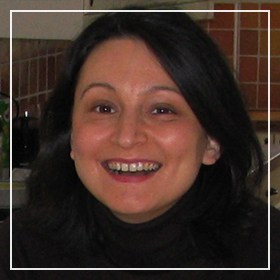Loss and its relationship to translation and incommensurability have been central features of my work. My interdisciplinary PhD (Social and Political Thought, Sussex) and Post-doc (HPS, Cambridge) examined the relationship between tradition, translation and incommensurability. In subsequent years I investigated the theoretical and philosophical dimensions of translation, border-making, and conflict across the boundaries of knowledge communities as well as researching and publishing on interdisciplinarity, trust, loss in knowledge and data-sharing. For example I examined losses in the movement of ideas and practices across time (2011) and problems of incommensurability in data sharing (2013).
In the last six years, I have also developed an expertise in the field of diaspora studies, transnationalism and Kurdish studies by using the conceptual tools and insight on translation and conflict which my PhD and post-doc at Cambridge provided.
My current work sits at the intersections of the fields of diaspora studies, ethno-politics, race and identity, indigeneity, global politics as well as social and critical thought.
I am particularly interested in the notion of ‘loss’ as it complements as well as challenges my expertise on translation, in particular the under-researched relationship between ‘ignorance’, ‘strategies of inclusion and exclusion’ and ‘loss’ in the translation of ethno-political identity in diaspora. As will be outlined below, my paper at the loss workshop brought these concepts together.
The intrigues of diasporic identity have been at the forefront of research in the last decades, awakening interest across various disciplines such as sociology, anthropology, geography and literature.
Research on diasporas, however, has tended to focus on, and perhaps over-emphasise tirelessly, how diasporas create ‘hybrid’ and ‘creole’ identities and/or ambiguous belonging ties.
My interest in ‘loss’ stems from the findings of my ethnographic research which highlights ‘shedding’ of Turkification by Kurds in London. In other words, my work traces how ethno-political identities brought from home are consciously shed and lost. Whilst loss is typically understood as a process which is passive, docile and out of one’s control, my conceptualization aims to demonstrate how agency and active mobilization should also be at the heart of our understandings of loss, including how loss is experienced, negotiated and enacted.

In my paper at the British Council Newton supported ‘loss workshop’ I discussed how Kurdish diaspora in London engage in de-Turkification, that is correcting, interrupting and shedding the intense Turkification and assimilation which Kurds have been recipients of in Turkey. My ethnographic data reveals that as ‘everyday critical discourse analysts’ Kurdish mobilized actors identify, challenge and unpack ideologically the Turkishness manifest in their (Kurdish) interlocutors’ discourses. They subvert conversations, interrupt, and correct the erasures and injustices they see being sustained in the discourses of politically less aware Kurds. A la Spivak, they unsanction ignorance, exposing and correcting acquiesced patterns of Turkified discourses, interrupting not only ‘ignorant ignorance’ but also ‘learned ignorance’ (Santos 2009). The paper examined how ethnic conflict at home has shifted self-definition amongst Kurds in London as previously self-identified ‘Turkish economic migrants’ have become self-identified ‘Kurdish diaspora’ over time (Demir forthcoming 2017).
As such my paper attempts to make an epistemological intervention into the ways in which loss is understood and articulated in diaspora. As my data identifies, whilst Turkification is proactively abandoned, Turkey is not; the lure of Turkey still persists amongst diasporic Kurds whilst Turkification is actively challenged and shed.





